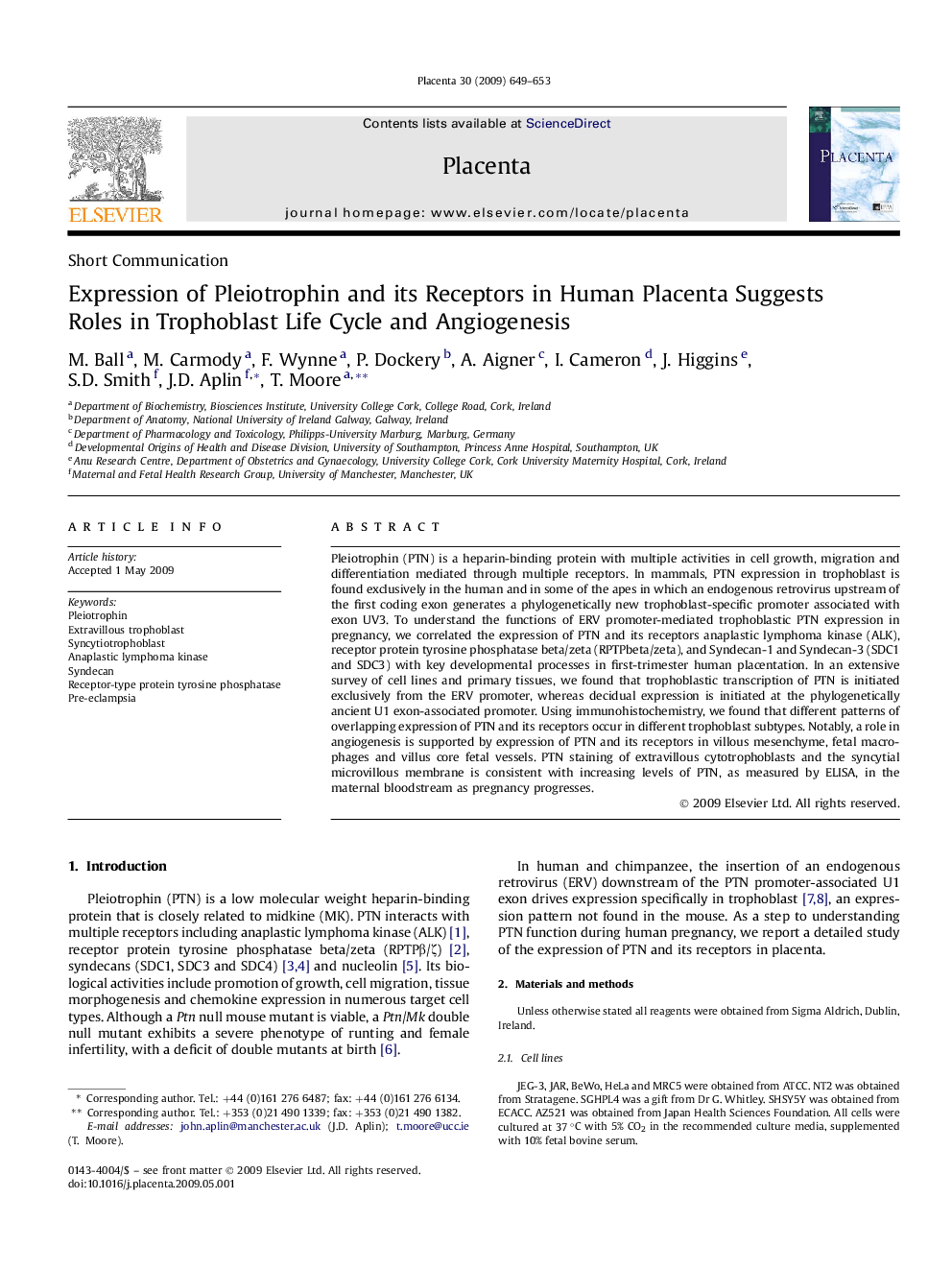| Article ID | Journal | Published Year | Pages | File Type |
|---|---|---|---|---|
| 2789448 | Placenta | 2009 | 5 Pages |
Pleiotrophin (PTN) is a heparin-binding protein with multiple activities in cell growth, migration and differentiation mediated through multiple receptors. In mammals, PTN expression in trophoblast is found exclusively in the human and in some of the apes in which an endogenous retrovirus upstream of the first coding exon generates a phylogenetically new trophoblast-specific promoter associated with exon UV3. To understand the functions of ERV promoter-mediated trophoblastic PTN expression in pregnancy, we correlated the expression of PTN and its receptors anaplastic lymphoma kinase (ALK), receptor protein tyrosine phosphatase beta/zeta (RPTPbeta/zeta), and Syndecan-1 and Syndecan-3 (SDC1 and SDC3) with key developmental processes in first-trimester human placentation. In an extensive survey of cell lines and primary tissues, we found that trophoblastic transcription of PTN is initiated exclusively from the ERV promoter, whereas decidual expression is initiated at the phylogenetically ancient U1 exon-associated promoter. Using immunohistochemistry, we found that different patterns of overlapping expression of PTN and its receptors occur in different trophoblast subtypes. Notably, a role in angiogenesis is supported by expression of PTN and its receptors in villous mesenchyme, fetal macrophages and villus core fetal vessels. PTN staining of extravillous cytotrophoblasts and the syncytial microvillous membrane is consistent with increasing levels of PTN, as measured by ELISA, in the maternal bloodstream as pregnancy progresses.
